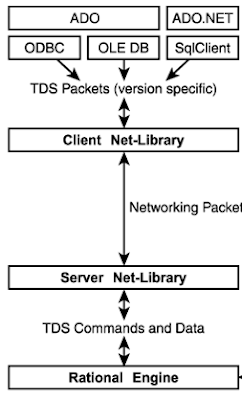SQL Server 2025 Regex Support: Native T-SQL Expressions
SQL Server 2025 && Regex = Less Code, Less Pain in your queries
Hi Guys,
Here’s some good news: after years of workarounds, hacks, and tricks, SQL Server 2025 finally ships with native regex support in T-SQL. And no, this isn’t just a nice-to-have. It’s a game changer for anyone who deals with messy data, phone numbers, emails, codes… you name it.
For years we’ve had to rely on ugly patterns like LIKE '%...%', CHARINDEX, SPLIT, or even external CLR functions.
They worked, but the cost in complexity, performance, and bugs was too high.
Finally: native regex in SQL Server 2025
That’s right. Now you get built-in functions such as:
REGEXP_LIKE(...)REGEXP_REPLACE(...)REGEXP_SUBSTR(...)REGEXP_COUNT,REGEXP_SPLIT_TO_TABLE,REGEXP_INSTR,REGEXP_MATCHES(table-valued functions are rolling out too)
All powered by the RE2 engine: fast, familiar, and compatible enough with PCRE and .NET regex syntax.
What changes?
- Parsing complex strings in plain T-SQL — finally readable.
- Less code, fewer bugs.
- Good performance, but keep in mind: for simple patterns like
LIKE 'abc%', the old operators are still faster.
A practical example: validating phone numbers
Let’s say we’ve got a PhoneNumber column, and we want to select only the valid ones:
- Italian numbers (
+39 345 1234567) - National with or without separators
- Filter out the garbage
With native regex:
-- filter only valid numbers
SELECT *
FROM Customers
WHERE REGEXP_LIKE(
PhoneNumber,
'^(\+39\s?)?3\d{2}[\s\/]?\d{6,7}$',
'i'
);
^(\+39\s?)?→ optional country code with spaces3\d{2}→ Italian mobile prefix[\s\/]?→ optional space or slash\d{6,7}→ 6–7 digit number'i'→ case-insensitive flag
Clean the number (digits only)
SELECT
REGEXP_REPLACE(
PhoneNumber,
'[^\d+]',
'',
1,
0,
'g'
) AS PurePhone
FROM Customers;
Here g (global replace) removes everything except digits and +.
Extract the number directly
SELECT
REGEXP_SUBSTR(
PhoneNumber,
'(\+?39\s?)?3\d{2}\d{6,7}',
1,
1,
'',
0
) AS MatchedNumber
FROM Customers;
Why is this a real breakthrough?
- No more ugly nested functions.
- Regex patterns are readable and maintainable.
- Validation happens in-database, avoiding round-trips to the app.
Quick wrap-up
SQL Server 2025 finally gives us native regex. It feels like a modern feature, but now it’s core SQL Server.
Use it wisely (regex can be expensive), but whenever you need advanced filtering or validation — it’s the right tool.
If you’re interested, I can prepare a follow-up post on regex & index tuning, showing how to normalize strings first so your queries still benefit from indexes.
Stay tuned and keep performance tight!
Luca



ReplyDeleteWow your blog sach me bahut hi lajawab hai mene adhi Jayada information apne collages ke project submit ki hai jisme ye batya gye hai compute course kitna jada benefir course hai computer ki jarurat har sector me padti hai or apko blog me article computer ke bare me maja a gye sach thanks you ese article submit karne ke liye
Graphic Designing course in Delhi NCR,
Best computer course in Delhi
Best Fine art Institute in Delhi